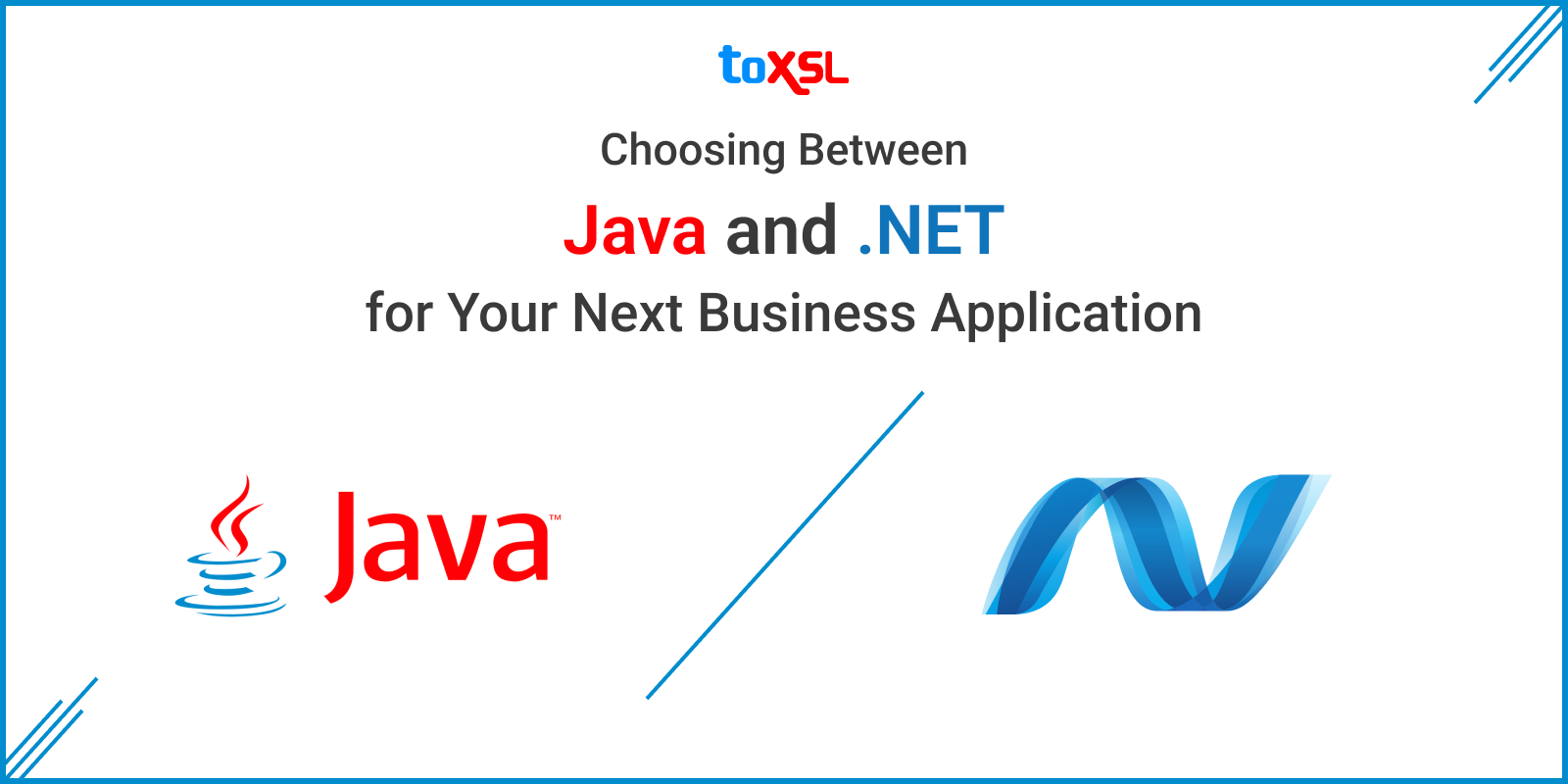- Mar 12, 2025
Share this post on:

Choosing the right technology for another business application relies upon different factors, including the purpose and core functionality of the application, scalability, security and connectivity requirements and also the current technology ionfrastructure available with client. In addition, the customer's own preferences, budget as well as compatibility with legacy applications should be contemplated.
A .NET or Microsoft technology based solution may be the right decision for an Enterprise-grade application which requires strict security and high level of data integrity, where as a Java based solution would be appropriate when the essential prerequisite is cross-platform operability in-accordance with its motto "write once, deploy anywhere". Java and .NET are two of the major frameworks used for large scale applications. Both technologies have evolved over the years to support and enhance desktop and server side application development.
Frequently organizations and developers need to choose between the two. And, on the grounds that no platform is perfect there are advantages and disadvantages to either, one needs to look at the similarities and differences between the two. The end goal of both platforms is similar, however, the means differ. There are a few contrasts in the internal mechanism of these frameworks and languages they use.
Comaprison Between .Net and Java
Windows VS Multi-Platform: There are a couple of open source implementations of Microsoft's .NET framework, .NET is essentially focused for the windows operating system. Java, however, is very convenient and platform independent. It depends on the idea that a same software should be interoperable with different computers, devices, consumer gadgets etc. on a network. Java applications are run on virtual machines that follow the adage of Write Once and Run Anywhere, so the applications function well with various systems without the need to rewrite.
IDE: Microsoft Visual Studio is the default IDE for .NET applications. This tool gives everything that a developer needs to develop, debuig, build and deploy any sort of application targeted for the .NET framework. There are four principle IDEs, Eclispe, IntelliJ Idea, Oracle NetBeans and Oracle JDeveloper for Java and different minor ones. This implies that instead of being tied up with a single platform and single environment, Java enables you to pick the product that best accommodates your necessities and budget.
Languages Supported: With the J2EE Java framework, Java is the default programming language and there are no other choices offered. This makes it easier for developers wanting to master the technology by simplifying the selection. .NET development framework offers support for a several language types including C#, F#, and VB.net. In addition, there is chance to rewrite additional programs for the .NET framework. Businesses often close on a dot net development company for enterprise application development, for this flexibility.
You can choose to use Mac OS, Linux, or some platform for which a JDK exists. .NET and Java have been around for a very long time and are both iconic development platforms. However, when you need to make a decision between the two, there are some considerations you must weigh.
How to Choose Between .NET and Java?
Complexity of the Applications: The general observation is that Microsoft has a slight edge over Java for building applications that require a richer GUI and for delivering web-based content. Though Java has the upper hand for delivering complex applications that support higher volume of data and users.
Existing Developer Skills: Consider your existing technology skillset and capabilities of your workforce. Do you have developers that influence towards a specific technology? Training developers and replacing infrastructure may scale up the costs extensively.
Portability: Java has multi-platform similarity and that gives you the freedom of vendor choice. Organizations frequently decide on custom Java development when integration and interoperability are a need.
At ToXSL Technologies, we have experienced teams with distinct skill sets for both .NET and Java, and they can work to build up the best suitable solution which would at last enhance the overall operational efficiency of your business.











